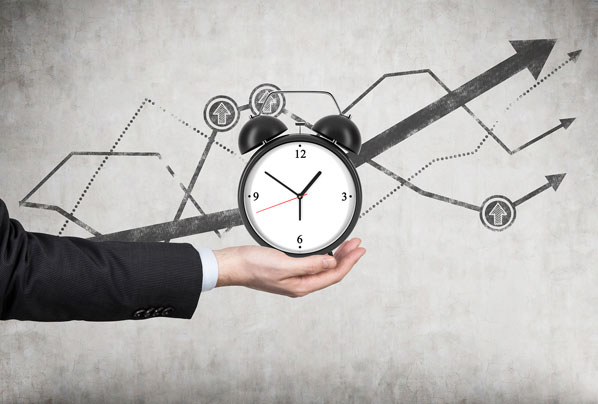
This article provides a few tips for time management on the run.
You have probably heard the saying “There just aren’t enough hours in the day.” This is especially true if your job involves traveling to a client’s site or if you work at or travel between remote locations (e.g., branch offices). Transit time can take a big chunk out of your day. In such situations it is important to recognize how to best use your time.
Prepare in advance. Make sure that you schedule your appointments far enough in advance to allow for emergencies.
Gather the materials and information you will need well before the scheduled date and time. This includes downloading driving directions or client information off the Internet. Waiting until the last minute could cause trouble, especially if something you need is not readily available or your Internet connection is down. It can also cause a late departure, which can then impact scheduled meetings or events.
Group appointments. Setting up more than one appointment in the same geographic area can save you and your customer’s time, effort, and frustration while reducing your travel miles. You can use the “group” approach when customers or vendors come to your site for meetings. Also, try to schedule meetings or return phone calls for one part of a day (e.g., the morning). For example, if you get all your meetings taken care of in the morning, you can then focus on other customer-related activities during the rest of the day without being interrupted.
Confirm your appointments. Take the time to e-mail or call your customer or client before leaving for an appointment. You will thus avoid an unnecessary trip if there was a change of plans and you were not notified, or someone forgot to note the meeting on his or her calendar. Your time, and the customer’s, are precious; treat it as such.
Plan visits during non-rush-hour traffic. If possible, schedule client or customer visits when traffic is not snarled and transit times can be reduced. Often, when you drive to other locations, something will slow you down (e.g., malfunctioning traffic lights, accidents, trains, vehicle breakdowns). You can grumble and accept lost productivity time, or you can be prepared by having alternative routes in mind and making sure that your vehicle is well maintained. Also, you can use the last tip in this section-listen to audiotapes to make the most of your downtime.
Purchase a Global Positioning Satellite (GPS) navigation system. Many newer vehicles now come equipped with these helpful devices installed. If your vehicle does not have one, invest a small amount of money in a portable unit. They can provide alternate routes around construction, traffic tie ups, accidents, or other unexpected roadblocks. They also provide a wealth of additional information (e.g. restaurant listings, public building locations and contact numbers, gas stations, and much more) that can save you time.
Upgrade your cell phone. In today’s changing world, advanced cell phones have become indispensable. Newer phones not only allow you to make and receive phone calls, they provide a tool for sending and receiving email, searching the Internet and performing a variety of administrative functions. Use your cell phone when you leave one client location for the next one to verify an appointment, get directions, or check for important email messages which might inform you that a meeting has been postponed or rescheduled at the last minute by a client. All of this can save you valuable time. Do remember safety and don’t operate the phone or send and receive text messages while driving.
Listen to cds/audiotapes. Travel time is a great opportunity to catch up on the latest recorded books that you never seem to have time to read. You can also listen to taped notes from customers or meetings while you are traveling. Additionally, you can record important information about various clients (new ones and ones you see or speak with periodically) and play them back on your way to appointments with them (e.g., past products or service used, organizational facts and statistics, or names of key people in the organization). This mental rehearsal can assist you to be better informed and appear more competent.
The key to effective time management is your mental attitude toward time and your ability to plan. Master these two elements and your time usage will become more effective.
About the Author
Robert (Bob) W. Lucas has written and contributed to many books, including: Customer Service: Building Success Skills for the Twenty-First Century.




